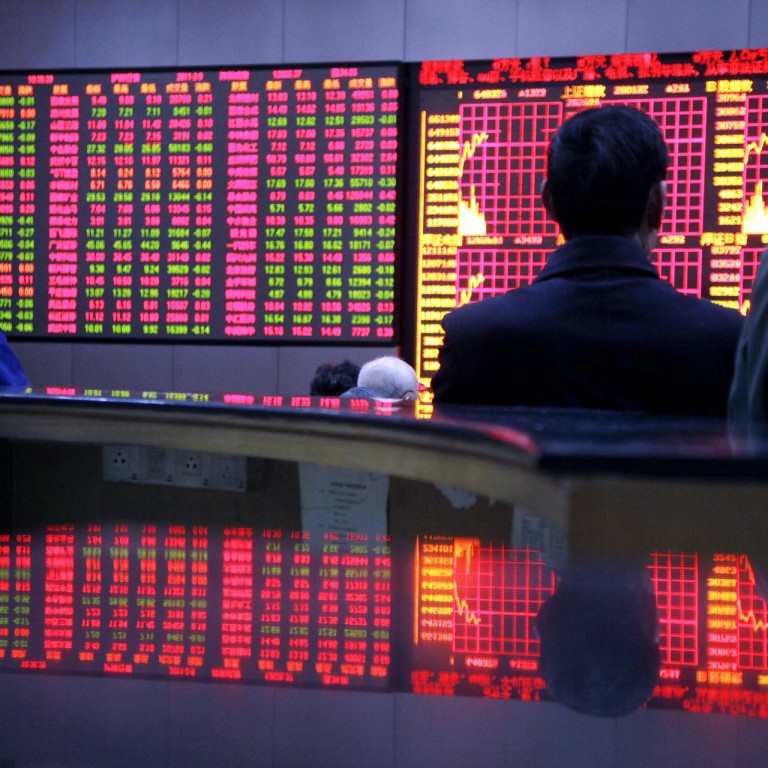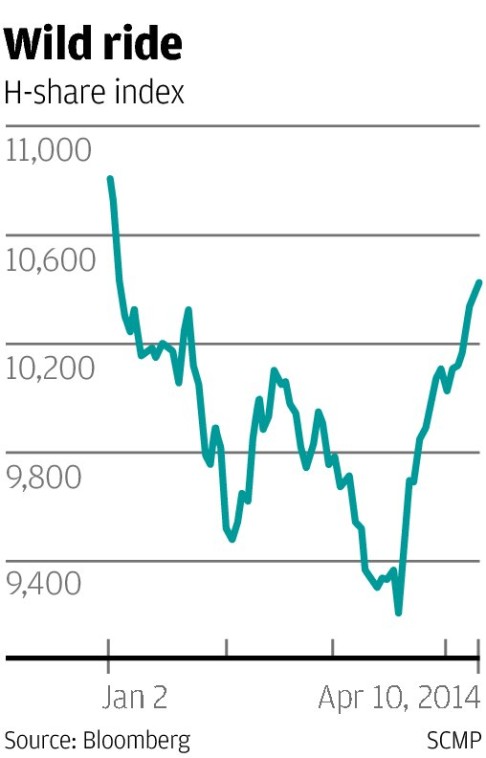
Investors in Chinese stocks stunned by sharp swings
From a sell-off over 11 weeks, the H-share index rebounded 13 per cent in 13 days, but analysts say the bullish turnaround will be short-lived
Investors trading in Chinese stocks have not been whipsawed like they are now for almost 20 years. Back then, it was speculation Deng Xiaoping, the leader who opened China up to foreign investment, was dying. Today, it is the nation's faltering economic expansion.
The growth concerns pushed the H-share index to the worst sell-off among major markets over the first 11 weeks of the year, only to give way to a 13 per cent surge that has topped all rivals.
The benchmark's relative strength index, a momentum indicator used to identify market turning points, went from sending a buy signal to sell signal in just 13 days.
"Sentiment changes quickly," said Kelvin Wong, a Hong Kong-based analyst at Bank Julius Baer.
Traders are setting themselves up for more disappointment by turning bullish now as they bet that the central government will step up stimulus measures to shore up growth, according to Wong and analysts at Standard Chartered.
Short sellers have cut bearish wagers by 65 per cent, turning exchange-traded fund investors into buyers from sellers and sending positions in the options market to the most optimistic levels since December last year.
"The rally will be quite short-lived," Wong said.
Speculation the central bank would loosen monetary policy as part of a broader stimulus package was misguided, he said.

Since 1995, the index has taken an average 45 days to swing between so-called oversold and overbought levels. It tumbled 9.6 per cent in April 1995 amid speculation Deng's health was deteriorating. It then rose 16 per cent that May before resuming declines to a record low in November. Deng died two years later.
On Wednesday, calls betting on a 10 per cent rise in the index cost the same as puts predicting a 10 per cent decline, for the first time since December. The bearish two-month contracts were about six points more expensive three weeks ago.
The rally "caught investors off guard", said David Welch, the head of equity sales trading at Reorient in Hong Kong. "Positioning was too one-sided."
Concern that policymakers will miss their 7.5 per cent growth target this year dragged down the index by 20 per cent from December 2 to March 20, the threshold that signals a bear market.
Fixed-asset investment rose in January and February at the slowest pace since 2001 while industrial production trailed estimates and exports fell the most since 2009.
Even if the central government achieves its 7.5 per cent target, it would still be the slowest expansion since 1990.
Premier Li Keqiang is trying to balance growth and employment with reining in a credit surge. China's debt-to-gross domestic product ratio is already higher than that of India, Brazil and Russia and JP Morgan Chase says it has surpassed the level in Japan that preceded that nation's financial crisis.
Chinese policymakers have accelerated construction projects, boosted spending on railways and eased funding restrictions for financial companies as part of its measures to accelerate growth. The move has benefited companies tied to infrastructure and lending, such as China Railway, China Merchants Bank and Yanzhou Coal Mining.
The H-share index is valued at 7.6 times reported earnings, near its cheapest level in 12 years.
